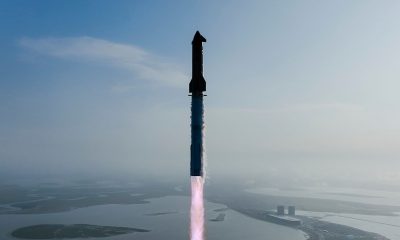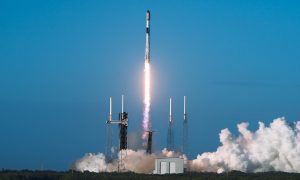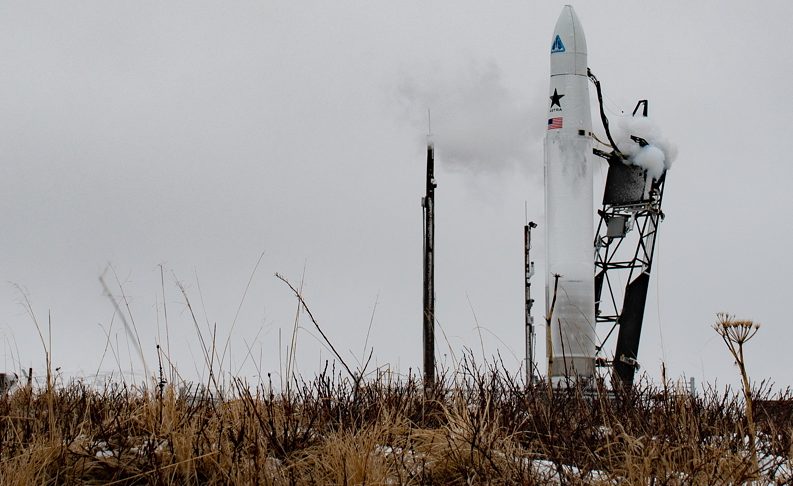

Space
DARPA’s $12 million launch challenge will go unanswered
Astra, a stealthy aerospace startup operated out of Alameda, CA, emerged from the shadows last month as it attempted to capture a coveted prize: a $12 million launch challenge from DARPA.
The challenge? To build a rocket capable of launching small military satellites from anywhere in the US with very little notice.
About two years ago, DARPA put out a call to search for a launch provider that could do just that. The competition started out between a field of eight, but DARPA soon narrowed it down to three finalists: Vox Space (an offshoot of Virgin Orbit), Vector Space, and Astra. Vector went bankrupt and Vox dropped out to focus its efforts on other projects, leaving Astra as the sole competitor.
Astra was founded in 2016 but has spent the last couple of years operating in secret as it built its launch vehicle. The two-stage vehicle, which stands 38 feet (11.6 meters) tall, is powered by five engines that rely on a combination of liquid oxygen and kerosene. The first whispers of the company’s existence came about after a couple of launch failures at the Pacific Spaceport Complex on Kodiak Island in Alaska.
But Astra pushed forward and nearly succeeded in capturing all the marbles.
As part of the challenge, Astra would have received $2 million for completing the first launch, and an additional $10 million to do it again before the end of March. Astra was provided details on the payloads less than a month before launch, and only got to see them when they were readied to be loaded into the fairing.
In order to demonstrate its ability to quickly prep for launch, Astra was not given orbital details, nor was it allowed to do any groundwork until just a few days before liftoff. If Astra succeeded in reaching orbit on the first launch of the challenge, DARPA would have offered $10 million more to do it again from a different launch pad before the end of March.
Astra was given a limited window to launch, with at least fours days of acceptable weather. That meant the initial rocket needed to get off the ground by March 2. The second rocket in the series would have to then launch to a slightly different orbit sometime between March 18 to 31.
Iffy weather caused some delays, but as the launch window was getting ready to close, the company was ready to go. Unfortunately, issues with some ground equipment thwarted the launch attempt. The company chose to stand down and lost out on the DARPA money as a result.
But Astra isn’t giving up. The company plans to get its rocket off the ground, even if it has to launch without a payload.
News
SpaceX Ax-4 Mission prepares for ISS with new launch date
SpaceX, Axiom Space, and NASA set new launch date for the Ax-4 mission after addressing ISS & rocket concerns.
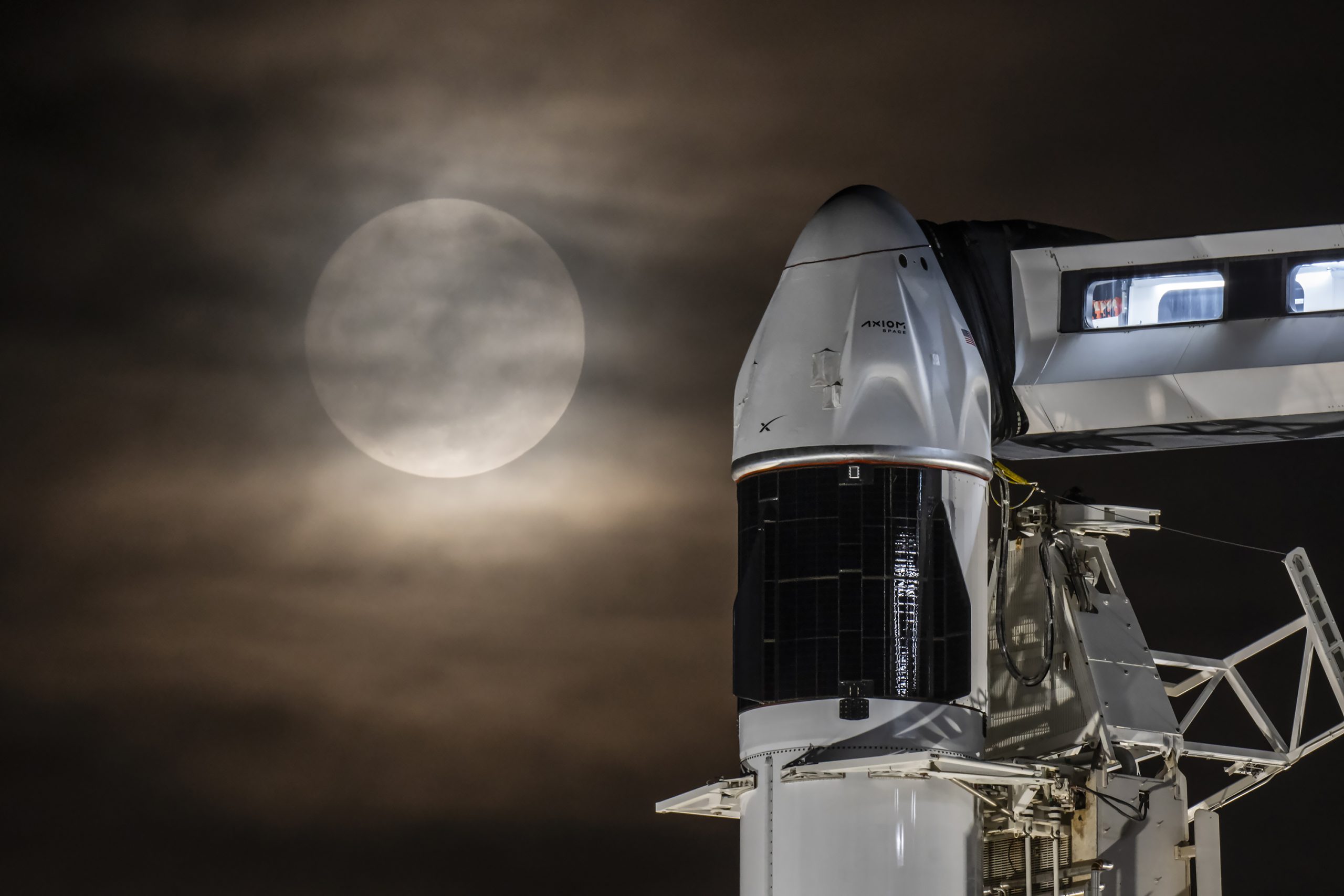
SpaceX is preparing for a new launch date for the Ax-4 mission to the International Space Station (ISS).
SpaceX, Axiom Space, and NASA addressed recent technical challenges and announced a new launch date of no earlier than Thursday, June 19, for the Ax-4 mission. The delay from June 12 allowed teams to assess repairs to small leaks in the ISS’s Zvezda service module.
NASA and Roscosmos have been monitoring leaks in the Zvezda module’s aft (back) segment for years. However, stable pressure could also result from air flowing across the hatch seal from the central station. As NASA and its partners adapt launch schedules to ensure station safety, adjustments are routine.
“Following the most recent repair, pressure in the transfer tunnel has been stable,” a source noted, suggesting the leaks may be sealed.
“By changing pressure in the transfer tunnel and monitoring over time, teams are evaluating the condition of the transfer tunnel and the hatch seal between the space station and the back of Zvezda,” the source added.
SpaceX has also resolved a liquid oxygen leak found during post-static fire inspections of the Falcon 9 rocket, completing a wet dress rehearsal to confirm readiness. The Ax-4 mission is Axiom Space’s fourth private astronaut trip to the ISS. It will launch from NASA’s Kennedy Space Center in Florida on a Falcon 9 rocket with a new Crew Dragon capsule.
“This is the first flight for this Dragon capsule, and it’s carrying an international crew—a perfect debut. We’ve upgraded storage, propulsion components, and the seat lash design for improved reliability and reuse,” said William Gerstenmaier, SpaceX’s vice president of build and flight reliability.
The Ax-4 mission crew is led by Peggy Whitson, Axiom Space’s director of human spaceflight and former NASA astronaut. The Ax-4 crew includes ISRO astronaut Shubhanshu Shukla as pilot, alongside mission specialists Sławosz Uznański-Wiśniewski from Poland and Tibor Kapu from Hungary. The international team underscores Axiom’s commitment to global collaboration.
The Ax-4 mission will advance scientific research during its ISS stay, supporting Axiom’s goal of building a commercial space station. As teams finalize preparations, the mission’s updated launch date and technical resolutions position it to strengthen private space exploration’s role in advancing space-based innovation.
News
Starlink India launch gains traction with telecom license approval
Starlink just secured its telecom license in India! High-speed satellite internet could go live in 2 months.
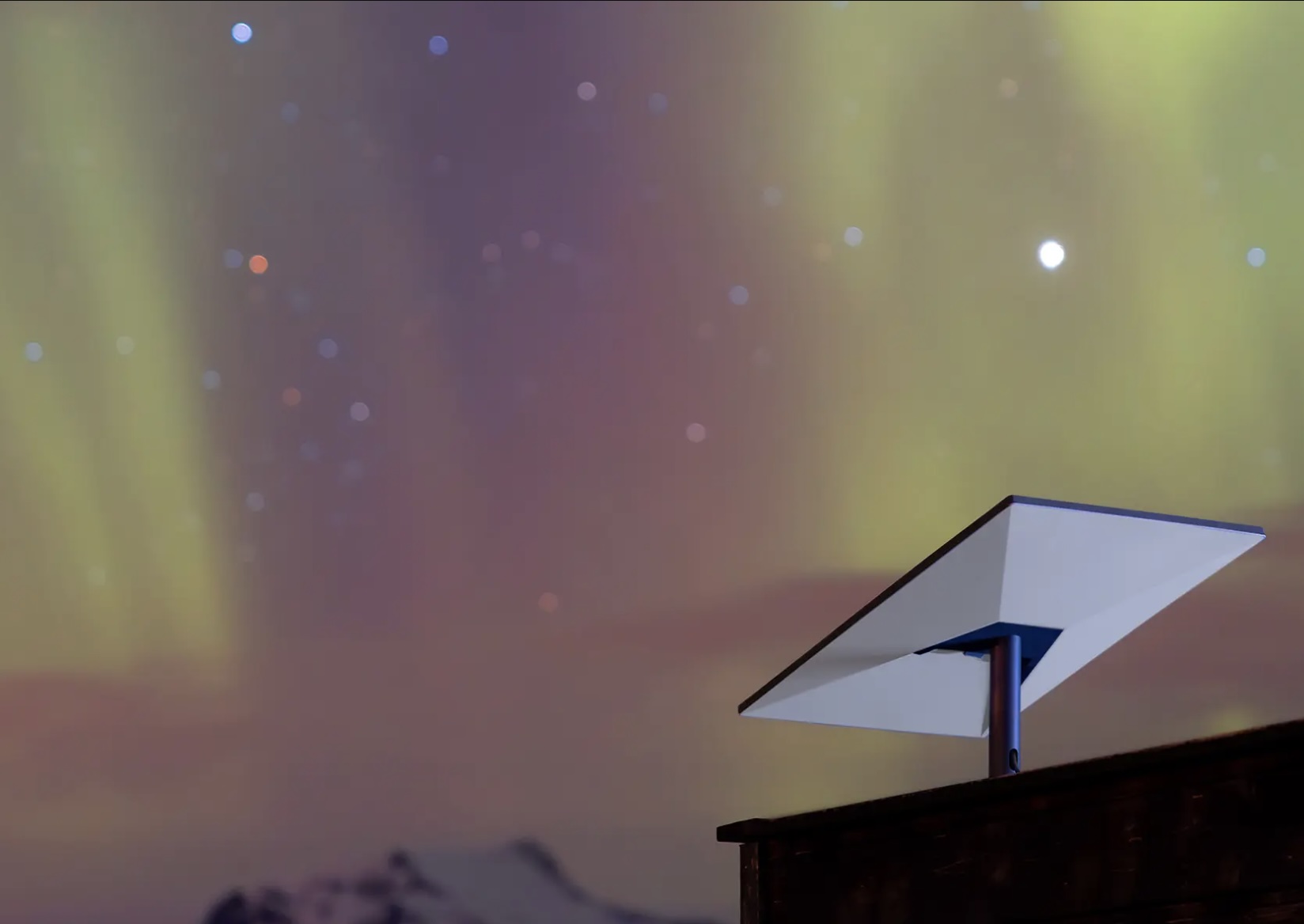
Starlink India’s launch cleared a key regulatory hurdle after securing a long-awaited license from the country’s telecom ministry. Starlink’s license approval in India paves the way for commercial operations to begin, marking a significant milestone after a three-year wait.
The Department of Telecommunications granted Starlink a Global Mobile Personal Communication by Satellite (GMPCS) license, enabling it to roll out its high-speed internet service. Local reports hinted that Starlink plans to launch its services within the next two months. Starlink India’s services are expected to be priced at ₹3,000 per month for unlimited data. Starlink service would require a ₹33,000 hardware kit, including a dish and router.
“Starlink is finally ready to enter the Indian market,” sources familiar with the rollout plans confirmed, noting a one-month free trial for new users.
Starlink’s low-Earth orbit satellite network promises low-latency, high-speed internet that is ideal for rural India, border areas, and hilly terrains. With over 7,000 satellites in orbit and millions of global users, Starlink aims to bridge India’s digital divide, especially in areas with limited traditional broadband.
Starlink has forged distribution partnerships with Indian telecom giants Reliance Jio and Bharti Airtel to streamline deployment and retail logistics. However, the company still awaits spectrum allocation and final clearances from India’s space regulator, IN-SPACe, and national security agencies before its full launch, expected before August 2025.
India’s satellite internet market is becoming increasingly competitive, with Starlink joining rivals like OneWeb and Jio Satellite Communications. While Starlink positions itself as a premium offering, its entry has sparked debate among domestic telecom operators over spectrum pricing.
Local reports noted that other players in the industry have raised concerns over the lower regulatory fees proposed for satellite firms compared to terrestrial operators, highlighting tensions in the sector.
Starlink India’s launch represents a transformative step toward expanding internet access in one of the world’s largest markets. Starlink could redefine connectivity for millions in underserved regions by leveraging its advanced satellite technology and strategic partnerships. As the company navigates remaining regulatory steps, its timely rollout could set a new standard for satellite internet in India, intensifying competition and driving innovation in the telecom landscape.
Elon Musk
SpaceX to decommission Dragon spacecraft in response to Pres. Trump war of words with Elon Musk
Elon Musk says SpaceX will decommission Dragon as a result of President Trump’s threat to end his subsidies and government contracts.
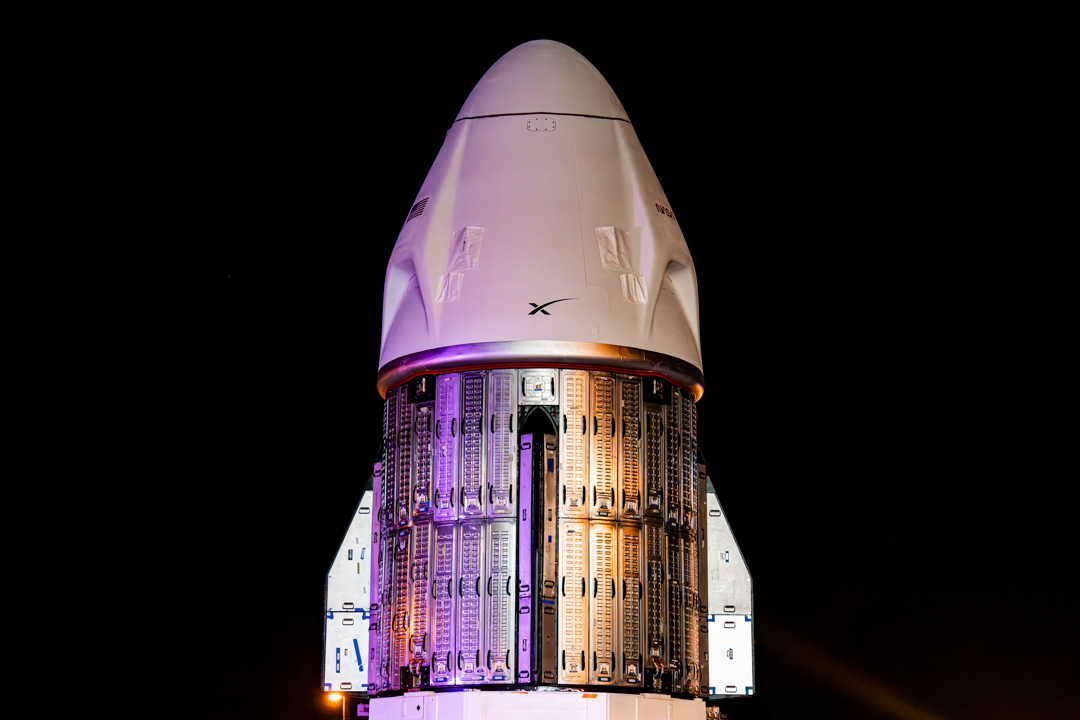
SpaceX will decommission its Dragon spacecraft in response to the intense war of words that President Trump and CEO Elon Musk have entered on various social media platforms today.
President Trump and Musk, who was once considered a right-hand man to Trump, have entered a vicious war of words on Thursday. The issues stem from Musk’s disagreement with the “Big Beautiful Bill,” which will increase the U.S. federal deficit, the Tesla and SpaceX frontman says.
How Tesla could benefit from the ‘Big Beautiful Bill’ that axes EV subsidies
The insults and threats have been brutal, as Trump has said he doesn’t know if he’ll respect Musk again, and Musk has even stated that the President would not have won the election in November if it were not for him.
President Trump then said later in the day that:
“The easiest way to save money in our Budget, Billions and Billions of Dollars, is to terminate Elon’s Government Subsidies and Contracts. I was always surprised that Biden didn’t do it!”
Musk’s response was simple: he will decommission the SpaceX capsule responsible for transporting crew and cargo to the International Space Station (ISS): Dragon.
🚨 Elon says Dragon will be decommissioned immediately due to President Trump’s threats to terminate SpaceX’s government contracts https://t.co/XNB0LflZIy
— TESLARATI (@Teslarati) June 5, 2025
Dragon has completed 51 missions, 46 of which have been to the ISS. It is capable of carrying up to 7 passengers to and from Earth’s orbit. It is the only spacecraft that is capable of returning vast amounts of cargo to Earth. It is also the first private spacecraft to take humans to the ISS.
The most notable mission Dragon completed is one of its most recent, as SpaceX brought NASA astronauts Butch Wilmore and Suni Williams back to Earth after being stranded at the ISS by a Boeing Starliner capsule.
SpaceX’s reluctance to participate in federally funded projects may put the government in a strange position. It will look to bring Boeing back in to take a majority of these projects, but there might be some reluctance based on the Starliner mishap with Wilmore and Williams.
SpaceX bails out Boeing and employees are reportedly ‘humiliated’
-

 Elon Musk5 days ago
Elon Musk5 days agoTesla investors will be shocked by Jim Cramer’s latest assessment
-

 News1 week ago
News1 week agoTesla Robotaxi’s biggest challenge seems to be this one thing
-

 Elon Musk2 weeks ago
Elon Musk2 weeks agoFirst Look at Tesla’s Robotaxi App: features, design, and more
-

 News2 weeks ago
News2 weeks agoWatch Tesla’s first driverless public Robotaxi rides in Texas
-

 News2 weeks ago
News2 weeks agoWatch the first true Tesla Robotaxi intervention by safety monitor
-

 Elon Musk2 weeks ago
Elon Musk2 weeks agoTesla officially launches Robotaxi service with no driver
-

 Elon Musk1 week ago
Elon Musk1 week agoA Tesla just delivered itself to a customer autonomously, Elon Musk confirms
-

 News2 weeks ago
News2 weeks agoTesla Robotaxi rollout proves that Elon Musk still delivers, even if it’s late










